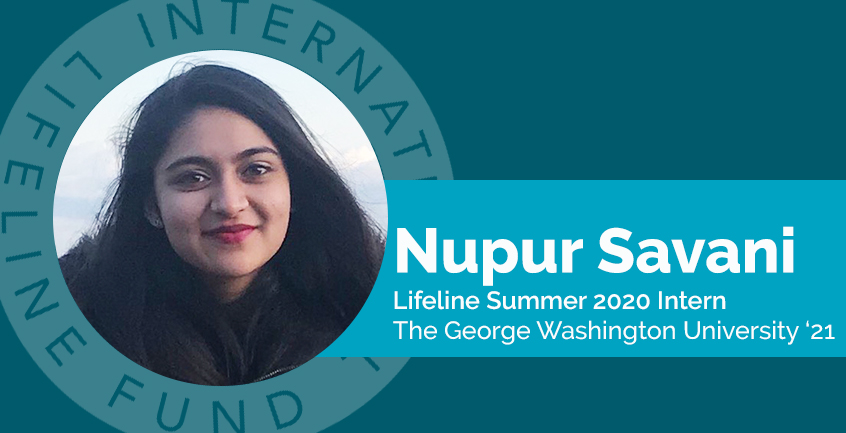By Nupur Savani
I am currently an international student from Kenya and a rising senior at the George Washington University studying International Affairs (IA). Reflecting on my past three years at university, I have had a few epiphanies. My experiences growing up in Kenya drove me to study IA because I wanted to help people, and end suffering and inequalities. However, I was not aware of the connotation of saviorism in my intentions and goals. This is not to say that I no longer want to work towards bringing equity and justice in the world. I have realized that development work needs to be more ethical so as to not sustain and perpetuate systematic inequalities.
In addition, I have realized that my international development studies have focused on critiquing development initiatives and understanding what has not worked. I hope to use the opportunity as Lifeline’s’s Program Assistant intern to engage with development models and learn about programs that have worked.
Lifeline’s social enterprise development models bring localized and holistic solutions to complex problems of unsustainable energy use, and food and water insecurity. Through this internship, I hope to critically engage with these development models to understand their resiliency to responding to crises as well as unintended negative outcomes.
In working with the Global Program Manager, I am looking forward to understanding demand driven development programs that are sustainable for communities and the environment. One of the major critiques of the development field in the academic sphere is that the development system follows a “top-down” hierarchy with the receivers of aid at the bottom of the hierarchy. ILF’s unique approach focuses on the demands and needs of the community while also supporting local solutions.
As a student I have had more exposure to international development theories, and through this experience I want to gain more practical knowledge and skills on project design, management, and evaluation. I seek to understand how development practitioners take development theories and create models that will be implemented while incorporating the complexities of human reality to accomplish the intended development work.
Social enterprise models are a financially sustainable approach to development; however, the success of equitable development programs require support from all stakeholders, not just donors. These stakeholders range from the local community, community leaders, government leaders, donors, partners, etc. I want to understand how communications a wholistic tool and process within development models is used to gain and maintain support in an ethical manner.
I have grown up in Kenya and I attended an American missionary high school. I have personally seen good people with good intentions attempting to do good work, yet they have created unintentional negative outcomes. Some of these well-intended initiatives have resulted in sustaining and perpetuating inequalities and racial hierarchies, and the reproduction of flawed narratives of “third-world” countries. As an aspiring practitioner of international development with good intentions, I want to understand the complexities of development models that produce positive outcomes that practically incorporate “do no harm” approaches, gender mainstreaming and prioritize local empowerment.

